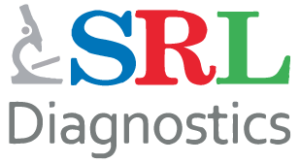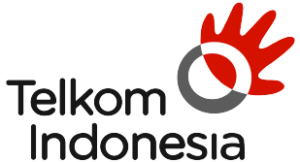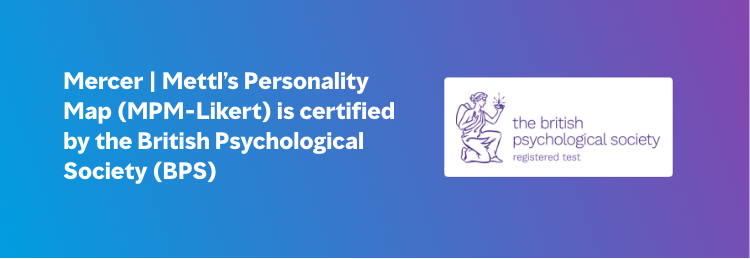Modern Foods also utilized psychometric tests to outline an objective plan to manage a multi-generational workforce, team restructuring and promotions.

SRL Diagnostics and its psychometric testing
SRL Diagnostics is an India-based diagnostic company providing diagnostic services in pathology and radiology. It has an employee strength of 6,000 and is spread across six regions, serving people needing varied diagnostic assessments. The company recognized the need for psychometric competency-based evaluations to build a high-performing team from its internal talent pool. It wanted to restructure its sales team better to serve diverse customer needs amid the COVID-19 pandemic. The sales assessment evaluated employees on various competencies, segmented and customized as per their job responsibilities. Resultantly, it empowered its employees to best use their abilities to achieve the mandated business results.

Telkom Group and its psychometric testing
Telkom is a state-owned information and communications technology enterprise and telecommunications network in Indonesia. The Telkom Group announced its digital transformation in 2020 and introduced three new business portfolios. This development prompted the need to upskill its employees digitally. Therefore, the company administered digital readiness assessments to its employees, including digital potential and proficiency assessments.
Such tests were designed to test the knowledge, skills and behaviors that underpin Telkom’s current employees’ preparedness and readiness levels to adapt to the organization’s transformative culture. For example, the digital potential assessment included personality assessments, critical thinking and abstract reasoning competencies, and the digital proficiency assessment covered the crucial skills to use digital tools and technologies. Consequently, these assessments helped the company profile over ten thousand employees on their digital readiness levels. Moreover, Telkom also assessed candidates on over seventy-five new skills to cater to new roles.

Paytm and its psychometric testing
India’s multinational technology company Paytm uses psychometric assessments as a value add while hiring. It has always eyed accelerated business growth; and, therefore, is aware of the constant challenge of hiring right in significantly less time. The company leverages behavioral analytics to understand a person’s likelihood of committing fraud and compliance with the organizational processes. It uses psychometric testing that is pivotal in uncovering the most coveted traits such as emotional control and customer service orientation and revealing such undesirable traits as workplace aggression or gender insensitivity.

Practo and its psychometric testing
One of the world’s leading healthcare platforms, Practo, uses psychometric tests besides asking its candidates to solve real-time problems. Indeed, Practo’s CEO and Co-founder Shashank ND once asserted that they, as a team, believe in hiring people who match the company’s culture and are passionate about its vision. Thus, psychometric tools are how employers can measure an applicant’s suitability for a specific role.

Citigroup and its psychometric testing
Citigroup is one of America’s leading multinational investment banking and financial services firm that uses numerical reasoning and logical reasoning psychometric tests. The numerical tests are known for increasing difficulty with succeeding questions, and its logical reasoning, a nonverbal rather pictorial test, is particularly challenging. Therefore, applicants may have to pass these tests before being offered a role based on the domain and position for which they apply.

ExxonMobil and its psychometric testing
Headquartered in Irving, Texas, ExxonMobil is an American multinational oil and gas corporation. The global company administers a series of tests to assess candidates’ intelligence and skills. The recruitment process is divided into four stages: online application, telephonic interview, pre-employment assessments and in-person interview. Primarily, candidates must complete their job applications, clearly detailing their work history, educational background, resumes and cover letter. Then as they move through the hiring process, the company may assess and interview them multiple times before selecting them for the job. Most importantly, employers want to ascertain candidates’ suitability for specific positions, considering the immense cost of replacing new hires. Therefore, it employs an array of psychometric tests, ranging from personality tests to verbal reasoning tests to logical thinking tests.

Ford Motor and its psychometric testing
The American multinational automaker employs over 190,000 people across the globe, with a widespread presence in 73 countries. Building and managing such a diverse workforce requires an exceptional hiring strategy. The famous car company uses a two-part psychometric test, namely, numerical reasoning and verbal reasoning tests. These tests enable recruiters to objectively assess a wide range of candidates with diverse qualifications and experiences. As a result, Ford Motor can quickly identify suitable applicants for a given role by analyzing the tests’ outcomes. Gathering such granular insights into candidates’ skills from just interviews and CVs seems rather unlikely, so it employs professional psychometric tests in various stages of the hiring process.

Hewlett Packard and its psychometric testing
Hewlett Packard (HP Inc.) is an American multinational information technology company that develops personal computers, printers and related products and provides 3D printing solutions. The psychometric tests for HP vary, depending on the type of job functions for which an applicant applies. Depending on the particular job profile, HP uses multiple psychometric assessments during its recruitment processes, such as personality tests, numerical reasoning tests, verbal reasoning tests, presentations, case studies, and group exercises. The job applications and evaluation process is divided into five stages: online application, aptitude assessment, telephonic interview, assessment center and final interview.

Macquarie Group and its psychometric testing
Established in 1969, Macquarie Group Limited is an Australian multinational investment bank and financial services company with a global workforce of over 14,000 employees. It has a strict selection system to ascertain that only competent candidates progress through the numerous rounds and join a high-caliber workforce. Psychometric assessments are leveraged throughout the hiring process to filter out unwanted candidates who lack the knowledge and competencies necessary for a career in this organization. Macquarie uses numerical reasoning, logical reasoning and verbal reasoning tests in its selection process.

McDonald’s and its psychometric testing
Founded in 1940, McDonald’s, an American fast-food company, is the world’s largest fast-food restaurant chain, employing over 1.7 million people across the globe. The company uses personality tests to assess whether a person is a good fit to become a part of the McD family. Personality questionnaires are tools to gauge a candidate’s behavioral preferences, and the company uses these tools to assess a wide range of applicants. By gleaning the results of such standardized questionnaires, the company quickly determines the most suitable candidates for particular roles.

Credit Suisse Group and its psychometric testing
Headquartered in Zurich, Credit Suisse Group is a global financial services holding company that uses psychometric assessments in its hiring process. The Swiss banking firm utilizes online assessments to determine the most suitable candidates for in-person assessment centers, for the next round of the application process. These tests assess a person’s intellectual and psychological aptitudes. The psychometric tests that candidates will most likely face are numerical reasoning tests and logical reasoning tests. Besides, the organization may administer other kinds of tests; however, it often uses the tests mentioned above.


Lloyds Banking Group and its psychometric testing
Established in 2009, Lloyds Banking Group plc came into existence when Lloyds TSB acquired HBOS plc. It is a British financial institution and the fourth-oldest bank in the UK. The bank implements an extensive selection procedure, usually involving two aptitude tests: numerical reasoning and strengths and cultural assessment. Candidates are instructed on which assessments they need to complete. The former is presented to the candidates, usually in the form of tables, statistics, graphs, and financial data, wherein they are expected to showcase excellent data analysis and logical comprehension skills. The latter is administered to assess a person’s behavioral and managerial skills and the ability to handle workplace situations.

JPMorgan Chase and its psychometric test
Headquartered in New York City, JPMorgan Chase is an American multinational banking and financial services holding company. The world’s most valuable bank offers a wide array of investment banking and financial services, employing over one hundred and seventy thousand employees across the globe. The bank rejects a staggering percentage of job candidates based solely on psychometric test scores. The organization uses assessments in the selection process, including numerical reasoning tests, verbal reasoning tests, inductive reasoning tests and situational judgment tests.
The hiring process commences with an online application wherein applicants need to detail personal and professional information and submit individual copies of CVs and cover letters. The next step involves inviting candidates for various types of online psychometric assessments. After that, successful candidates are called for interviews, followed by a series of competency, technical skills, motivation and self-awareness-based questions, depending on the position for which they have applied. Finally, shortlisted candidates have to clear the assessment center, which includes various exercises, such as role-plays, case studies and presentations, fast-track tests and group exercises.

Deloitte and its psychometric test
Deloitte is a multinational financial services organization providing consulting, audit and assurance, tax, risk advisory, financial advisory, and other related services. The company has a global workforce of over 300,000 people. Deloitte conducts multiple psychometric assessments to measure various aspects of a candidate’s personality, including intelligence, skills, and the ability to adapt to challenging environments.
There are two main types of tests: the Deloitte game-based assessment and the Deloitte aptitude assessment. The former is a gamified assessment called ‘Cosmic Cadet’ that aims to identify how a candidate thinks and reacts in different scenarios. The results come in a personalized feedback report. The latter is a union of three tests, including numerical reasoning, situational strengths and verbal reasoning. The selection process may differ based on the role a person is applying for, but it usually involves online psychometric assessments.

Accenture psychometric test
Founded in 1989, Hamilton, Bermuda, Accenture is a multinational consulting and professional services company with a leading edge in digital, cloud and security. In the Accenture recruitment process, situational judgment tests are essential in assessing various job candidates. These bespoke psychometric tests are administered early in the hiring process, typically to screen applicants before the interview round. Such assessments include a made-up scenario inspired by everyday work challenges to determine those behaviors and skills which the organization desires.

Tech Mahindra psychometric test
Headquartered in Pune, Tech Mahindra is one of the leading IT service providers globally. The Indian multinational company provides IT and business process outsourcing (BPO) services to its client. The company is a subsidiary of the Mahindra Group, with an employee strength of over 125,236 across 90 countries. Rajeev Dubey, Former group president, HR, at the Mahindra Group, once offered insight into how the company uses psychometric assessments to determine whether a person fits into the company’s culture or has some dysfunctional traits, such as insensitivity, aggressive behavior or low integrity. Similarly, based on the role requirements, Tech Mahindra utilizes psychometric assessments in its hiring process.

PWC psychometric test
PWC is a global professional services network of firms operating under the PWC brand. It is one of the biggest accountancy firms globally, why its jobs are highly sought-after. PWC assesses a wide range of skills when hiring top talent. The PWC assessment test includes digital games that measure math, memory and reasoning skills and various types of psychometric assessments. PWC receives thousands of applications each year and requires an efficient screening of applicants before final interviews. That is where psychometric assessments enable recruiting teams to identify candidates that match their requirements.
PWC psychometric test assesses applicants for some must-have skills for consultants, including numerical competency, ability to work under pressure, decision-making and logical reasoning. PWC uses the two most common types of psychometric assessments: ability tests and personality questionnaires. The former combines numerical, verbal, and inductive reasoning (or logical reasoning) tests. The latter is a work-style preference questionnaire to gain insight into candidates’ typical behavioral styles and abilities to address different situations.

KPMG psychometric test
KPMG International Limited is a multinational professional services network, offering professional advisory, tax and audit services. KPMG employs more than 227,000 employees globally and is perceived as a great place to work. Thus, the competition to get into the firm is intense. Here, the path to employment involves numerous steps, starting with an online application process, followed by psychometric assessments, and concludes with the candidate’s final interview. KPMG generally uses numerical and verbal reasoning tests as part of its recruitment process.

Proctor and Gamble (P&G) psychometric test
The Procter & Gamble Company (P&G) was founded over a hundred and eighty years ago. It is a multinational consumer goods company with several iconic, trusted product brands in its portfolio. The company uses various assessment tools, including psychometric assessments as sieves for recruiting the right candidates from thousands of applicants each year. P&G uses online assessments to assess skills and cognitive abilities.









 Behavioral Competencies
Behavioral Competencies Cognitive Competencies
Cognitive Competencies Coding Competencies
Coding Competencies Domain Competencies
Domain Competencies









































Would you like to comment?